Farm or Garden?
By Dennis Klocek 7 min read
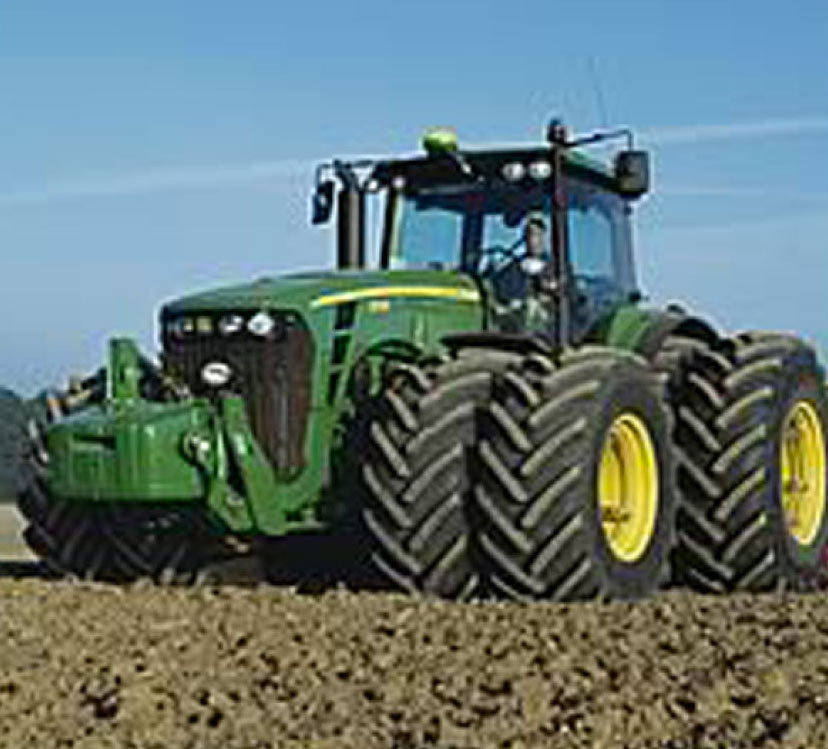
Artisanal agriculture is based on small scale methods. The illusory power over nature that drives large scale agriculture can be seen in a five hundred horsepower John Deere tractor. To duplicate that power with five hundred actual horses would require setting up teams and harnesses for a double column a quarter of a mile long. Gee and haw to that column would be a joke. Most small scale garden operations use “shanks mare” and two arms to “git ‘er done”. A small scale approach to growing plants for food and medicine requires different thinking, not more land. An old Polish saying is, ”what you put in your head you don’t have to carry on your back”.
I have seen several experienced young people who were running small scale garden operations struggle with using large scale implements and production techniques. Often they had learned to grow plants apprenticing on large scale operations but were starting out themselves by working intensively with an acre or less. At a large scale, crop spacing is determined by machine implement sizes and the need for the equipment to turn around. On smaller plots machines can dominate the space, not plants.
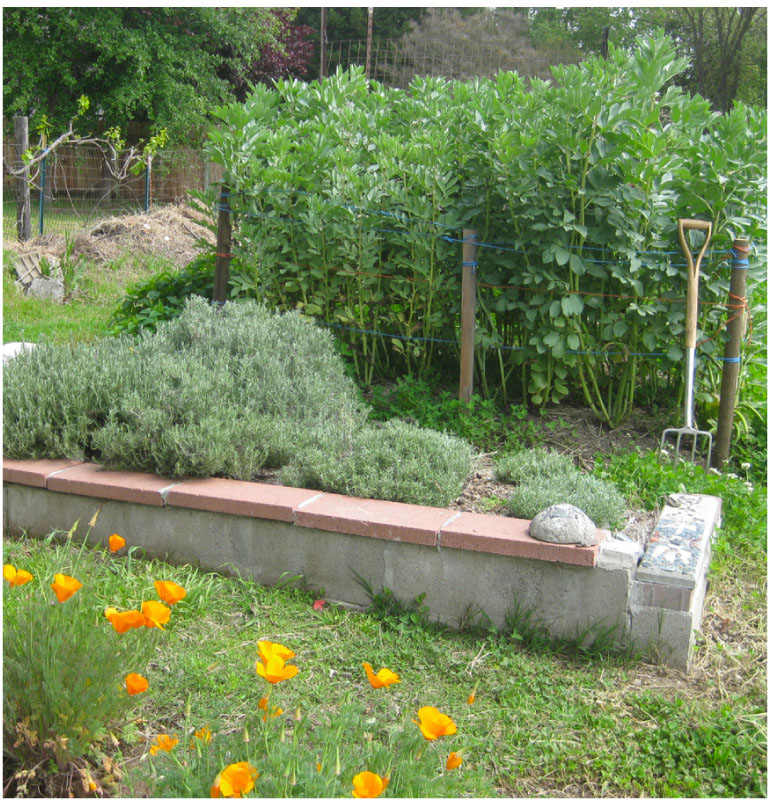
In the space of a modest backyard, traditional small scale artisanal methods can provide abundant and economical harvests. The artisanal approach to land use is based on effective collaboration with seasonal rhythms. A work day might involve integrating all operational activities from soil prep to harvesting to processing.
A focus on rhythms helps in the design and layout of a workplace / kitchen so that flow from one to the other is seamless. Economy comes when products travel small distances between each step.
Time is the adversary of large scale plant operations. There is never enough time to meet deadlines due to weather, bugs, weeds, equipment failure etc. If small scale work is rightfully understood, time can be used to great advantage. Synergy is gained when a workflow is managed through precise staging of operations in harmony with seasonal rhythms.
In small scale work repeated attention to small rhythms in the daily round offer insight into more effective production methods that impact the long term. We could say that this approach is “telescoping time”.
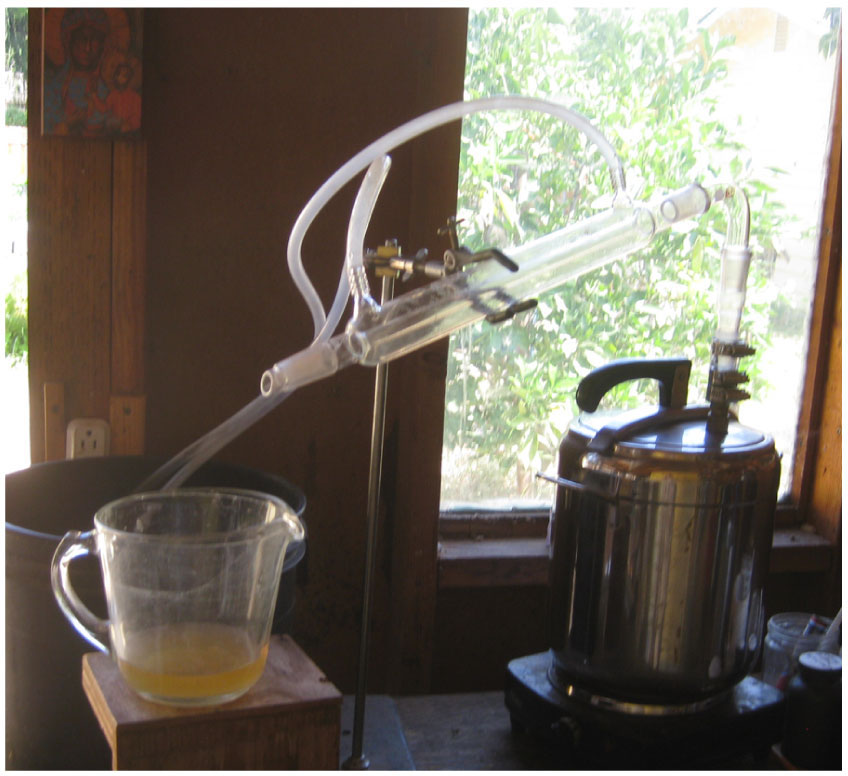
For instance, pruning acres of older herbs in late summer in a production setting is a tedious chore. These prunings generally doesn’t yield commercially significant amounts of oil. However, on a small scale, prunings from older basil can easily be run through a small distillery set up in a corner as they are brought in.
Steam distilled prunings yield a fragrant hydrosol for the kitchen, the bath or for creating sprays to enhance growth. Coordinating distilling with pruning requires advanced thought. But in a small scale operation, once things are flowing there is very little wasted time. The rhythmic nature of the work produces healthful products with minimal waste.
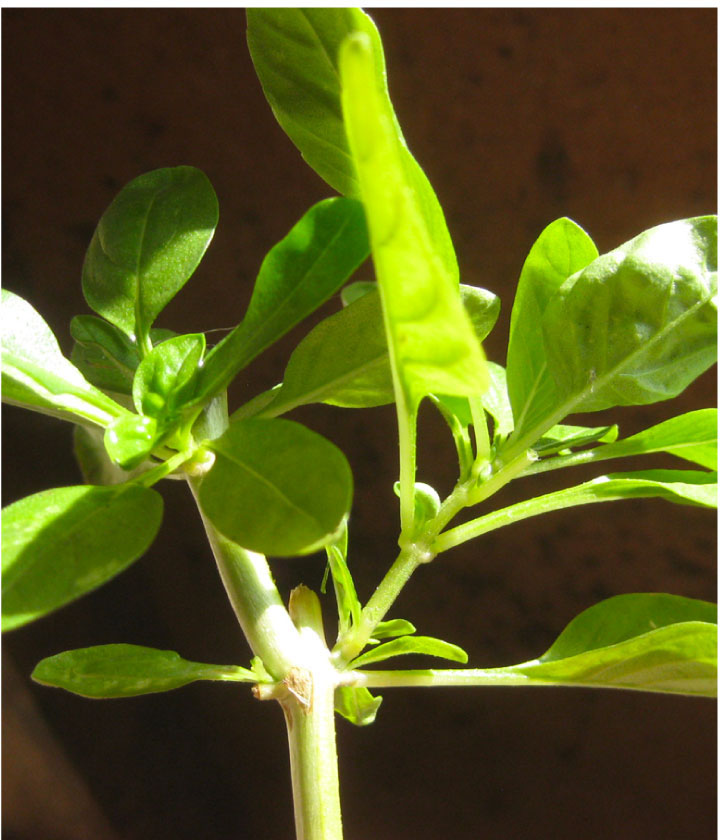
To see how planning for that works, the basil work can be telescoped back in time to a month earlier. At that time a main harvest pruning was done for drying and pesto. The plants were threatening to seed out. The pruning was done so that branches that had lignified were cut back to stimulate growth of more lateral buds. Lateral buds produce more flowers that produce more essential oil than a lignified branch.
Every five days after pruning, the basil plants were very lightly sprayed with a ferment designed to stimulate both growth and terpene production. During the month this produced a significant final growth of the lateral buds of the basil plants with little run up to seed. After a month the final oil harvest was very good from plants that normally would have been tossed on the compost. But these events can even be telescoped back a month earlier.
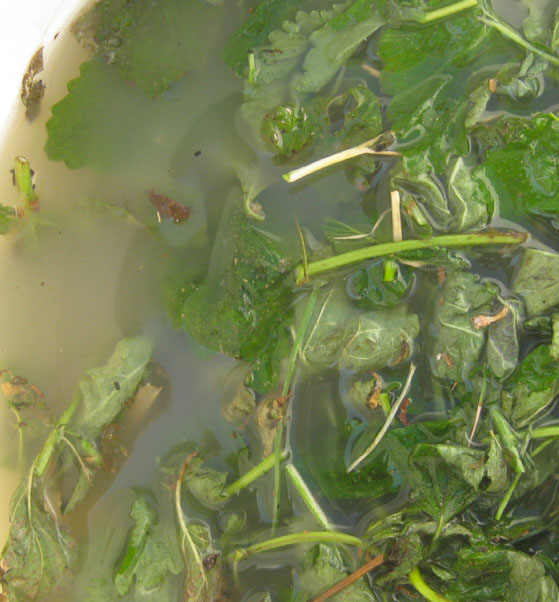
The image shows early trimmings of the same basil plants as well as the harvest of mature lemon balm, rosemary and marjoram cuttings being fermented in a vinegar made with barley malt and coconut water. This is to extract their terpenes and fix them into the vinegar. The terpenes in the herb vinegar, fermented along with the hormones from the barley malt and coconut water, created the spray that was used on the basil after the first cutting and again in the fall.
In the late cutting, the diluted vinegar with a wide palette of mint family terpenes helped the old basil to develop robust terpene content and late season growth. The growth hormones in the ferment multiply the number of inflorescences on an individual plant. More inflorescences mean more essential oil production per plant. This makes maximum usage of the garden space meaning less maintenance work for an enhanced result.
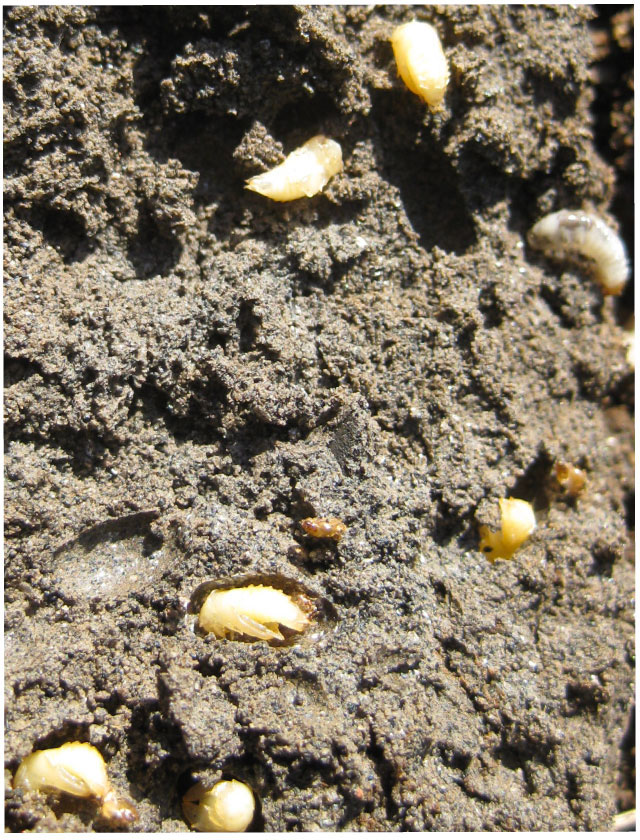
But this work can be telescoped back even further in time. For several months during the previous summer the spent herbs from the distilling flask were all put on one heap with a little manure. Over winter into spring, the herb compost was a big favorite of June bugs, ants, spring tails and other insects. It was their nursery.
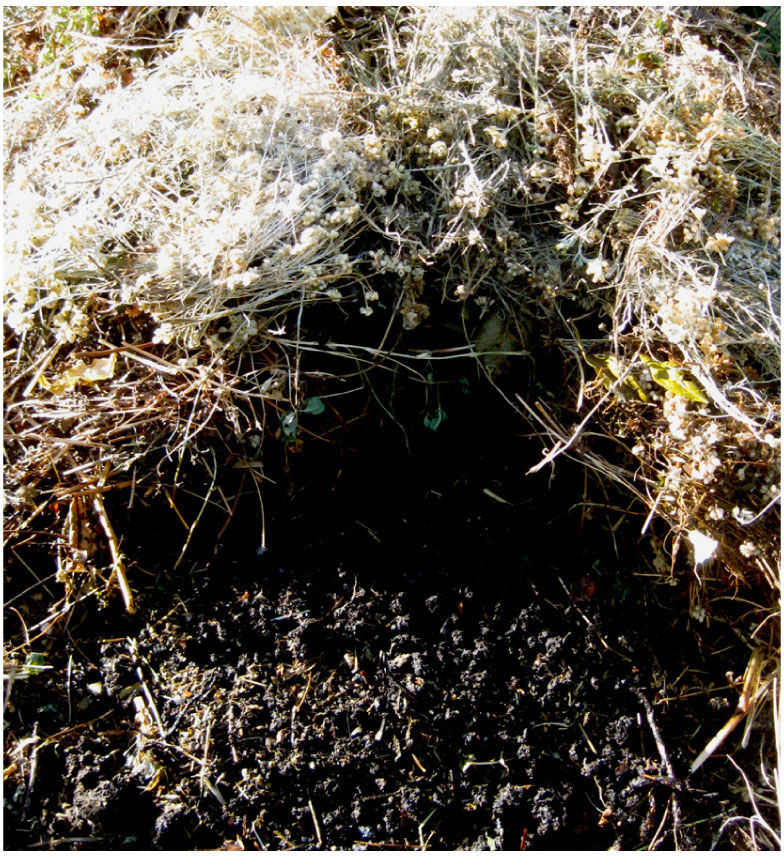
The image shows the herbal compost heap , very dark but not very rich in nitrogen. This compost is very beneficial for herbs when worked into planting holes in early spring. The minerals in it have already experienced relationships with plant hormones and enzymes and especially the medicinal properties of terpenes. The minerals left in the plants from the distillation, have a kind of “sense” for terpene production and balanced growth.
So to telescope this path to the final product there was a sequence of events throughout one summer to the following spring and on to the summer. These were carried over to the final harvest in early fall, over a year later.
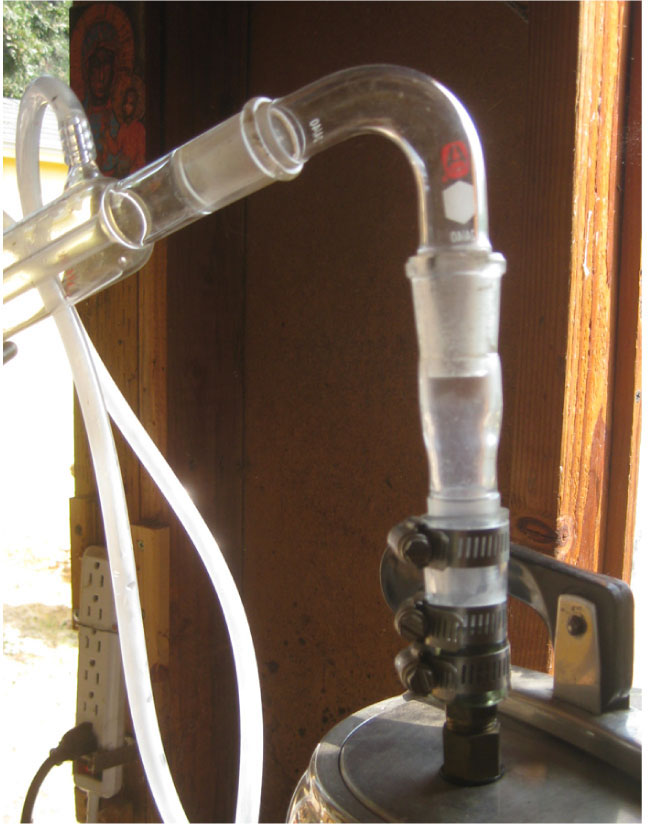
To extract these products a small still was essential. The image shows a close up of the adaptation for connecting a pressure cooker to a glass adapter fitting. This allows a water cooled Liebig condenser to be connected to the steam. This economical still was central to the transformation of these substances. With it, spring, summer and fall were tempered in their seasonal effects to reduce waste and produce a superior final product.
Similar rhythms can be employed for creating composts and fruit sprays. On a large scale, these kinds of micro level adjustments are not practical. Mechanization creates time constraints that are amplified by volume flow and solved by cutting costs. These influences determine the final food or medicinal value of the product.
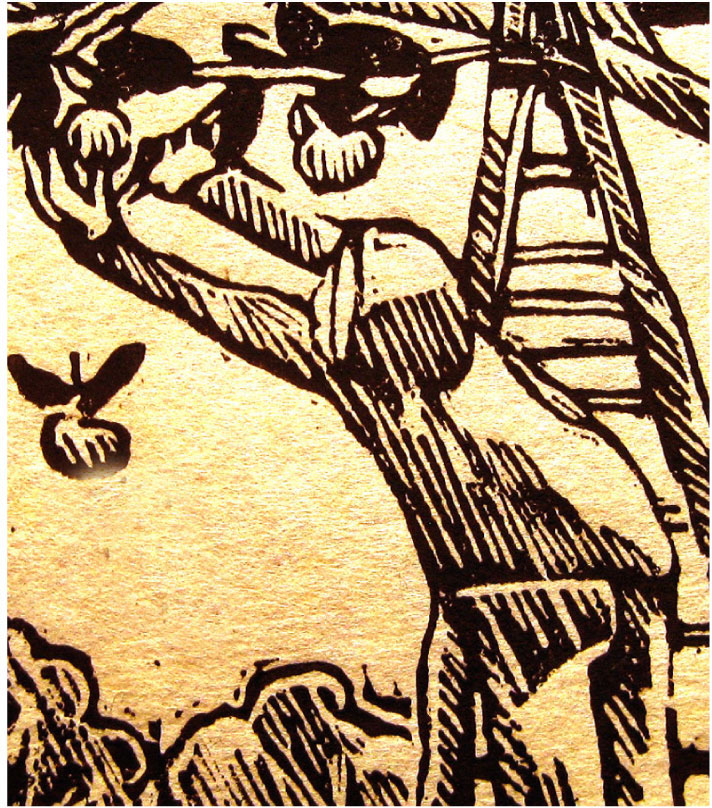
In the artisanal small scale approach balanced plants grown in less space provide a superior quality product. Short distances between the soil and the table make less of an impact on fossil fuel usage. Less land and fewer plants are needed meaning less time spent weeding. Fermented hormonally rich sprays diminish fertilizer needs bringing down costs. Harvesting and processing plant materials on site reduces packaging waste. Onsite work minimizes supply chain problems. Superior taste and nutritional value without the need for preservatives promote health. Etc

Dennis Klocek
Dennis Klocek, MFA, is co-founder of the Coros Institute, an internationally renowned lecturer, and teacher. He is the author of nine books, including the newly released Colors of the Soul; Esoteric Physiology and also Sacred Agriculture: The Alchemy of Biodynamics. He regularly shares his alchemical, spiritual, and scientific insights at soilsoulandspirit.com.
4 Comments
Leave a Comment
Similar Writings
Earth Stewardship and Imagination
To truly see the Earth as a living being with a soul capable of will impulses and feelings requires humans to come into contact with the way that phenomena in nature stimulate feelings and will impulses in human beings. The sequence here is sense experience creating a picture image in the nerves that leads to…
Wood and Weeds – Compost Medicine
Transforming horse manure, wood and weeds into rich humus compost. In this video, Dennis demonstrates the process of turning horse manure into a rich, humus-filled compost. Starting with partially decomposed horse manure, Dennis shows the impact of adding humus to accelerate the breakdown process. He explains the creation and maintenance of a log berm, a…

Hello ! Thanks for the great pictures! It will be a joy to read more details on the making of the still. I was wondering were to get those glass fittings and other parts. Many blessings your way Dear Dennis and Ben!
Danilo, we recently published a video with more details on the still. See here: https://soilsoulandspirit.com/in-the-lab-using-a-simple-still-for-home-extraction-of-essential-oils/
I am so completely inspired by this worldview! Head to toe happiness, and hope flowing through me after reading this. Thanks Dennis!
We’re so glad it’s providing inspiration, Terry! Let us know if you have any questions. Dennis has so written and taught so much over the years, it can be overwhelming finding your way through his work sometimes.
Warmly,
Ben Klocek